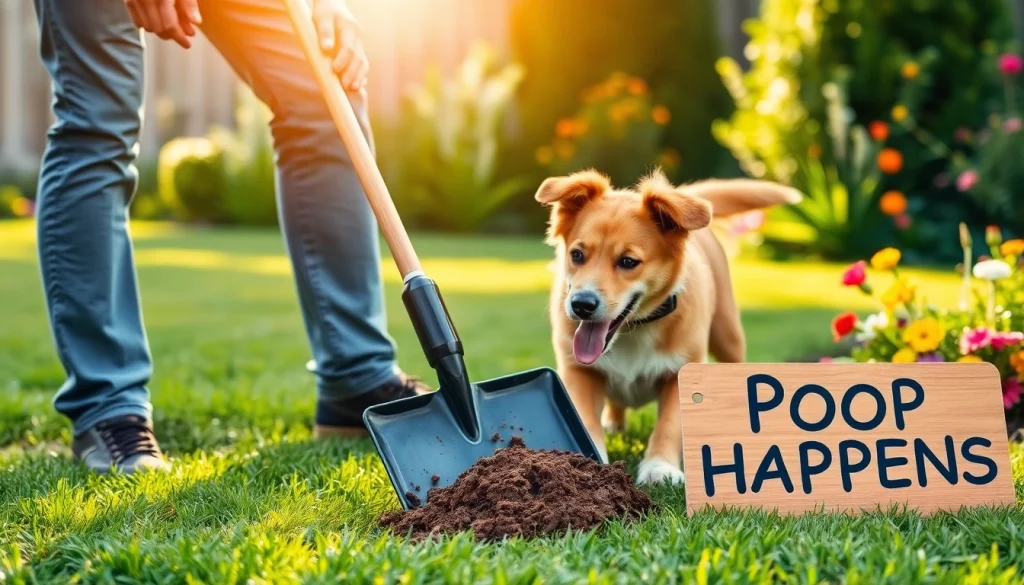Understanding the Importance of Cleaning Up Dog Poop
Cleaning up after our pets is a responsibility that comes with dog ownership. While it might seem unpleasant, proper dog waste management is crucial for a variety of reasons. Not only does it promote a cleaner environment, but it also safeguards the health of your pet, your family, and your community. Proper cleanup is essential to prevent various health risks associated with dog waste, to protect our environment from contamination, and to adhere to legal regulations regarding pet ownership.
Health Risks Associated with Dog Waste
Dog poop is not just organic waste; it can be a potent source of harmful pathogens. Various parasites, bacteria, and viruses can thrive in dog feces. For example, fecal matter can harbor Giardia, roundworms, salmonella, and E.coli, which pose serious health risks if ingested or contacted by humans and other animals.Clean up dog poop frequently and effectively minimizes the risk of spreading these pathogens and helps maintain a safe space for play, particularly for children who may unknowingly come into contact with contaminated areas.
Environmental Impact of Neglecting Cleanup
Neglecting to clean up after your dog can lead to serious environmental repercussions. When it rains, dog waste can wash into storm drains, directly contaminating local water sources. This runoff can lead to problems like eutrophication, which causes excessive growth of harmful algae that depletes oxygen in water bodies, endangering aquatic life. Moreover, the accumulation of waste contributes to unpleasant odors and the degradation of the aesthetic value of parks and residential areas.
Legal Implications of Dog Waste in Public Spaces
Many municipalities have specific laws prohibiting dog owners from leaving their pet’s waste in public areas. Violating these laws can result in fines and other penalties. These regulations are in place not just for cleanliness but also for the health considerations of the community. Being aware of and adhering to these laws not only protects you from potential legal consequences but also fosters a positive public image and encourages responsible pet ownership.
Best Practices for Dog Poop Cleanup
To ensure effective cleanup and the avoidance of any health or environmental issues, adopting best practices is critical. Below, we highlight some of the best recommendations on timing, tools, and techniques that can streamline the cleanup process.
Timing Your Cleanup: Regular Schedules
Establishing and maintaining a regular poop cleanup schedule is essential. It helps keep your yard and public spaces clean and reduces the buildup of waste. Ideally, you should clean up after your dog every time they go out for a bathroom break. If you have a busy schedule, consider setting designated times throughout the day—early morning, mid-afternoon, and evening—to conduct the cleanup. During winter months, adaptation to seasonal conditions might mean checking your yard more often, as waste can be obscured by snow or frozen ground.
Using the Right Tools for Effective Cleanup
Equipping yourself with the right tools can significantly ease the cleanup process. Here are some essential tools every dog owner should consider:
- Pooper Scooper: A reliable pooper scooper or a long-handled scooping tool prevents bending over and can efficiently pick up waste from various surfaces.
- Dog Waste Bags: Biodegradable bags are an excellent option for on-the-go cleaning. Ensure you always carry a supply during walks.
- Disposable Gloves: Wearing gloves protects your hands from contact with waste and makes handling bags easier.
- Disinfectant: A mild disinfectant can help clean any surfaces that may have come into contact with waste.
- Waste Digester: For environmentally-conscious homeowners, waste digesters can be a sustainable method for disposing of pet waste.
Tips for Tackling Tough Spots
Cleaning up dog poop can be particularly challenging in certain situations. Here are some tips for tackling tough spots:
- Soft or Wet Poop: When cleaning soft or wet poop, consider using a metal scooper that can easily scrape the substance off the ground or surface. Alternatively, you can use cardboard or disposable materials to scoop up the waste.
- Yard Cleanup: For grassy areas or mulch, use a rake to gather the waste and then utilize a scooper for easy disposal. If the waste has dried, a vacuum or leaf blower can help remove it.
- Indoor Accidents: For indoor accidents, be prompt with cleanup. Use an enzyme-based cleaner that helps neutralize odors and break down bacteria.
Innovative Tools and Solutions for Pet Waste Management
Innovative tools have emerged to help pet owners maintain cleaner environments while addressing the challenges of dog waste cleanup.
Choosing Eco-Friendly Pooper Scoopers
Modern pooper scoopers are designed not only for efficiency but also with eco-friendliness in mind. Look for options made from sustainable materials or consider biodegradable scoopers. Some products even come with additional features such as built-in bags, making it easier to dispose of waste responsibly.
Exploring Waste Digester Systems
Waste digesters work like miniature septic systems for dog waste. These systems use a combination of natural enzymes and bacteria to break down dog feces into non-toxic substances. They are an excellent choice for environmentally conscious pet owners, as they reduce the need for plastic waste bags while facilitating an eco-friendly disposal method.
Understanding the Use of Compostable Bags
Compostable waste bags offer a viable alternative to traditional plastic. These bags decompose more quickly and can be used in composting systems designed to break down pet waste responsibly. Educating yourself about local composting regulations concerning pet waste is crucial, as not all compost systems can handle animal products.
How to Clean Up Dog Poop in Various Environments
Cleaning up dog waste varies significantly depending on the environment. This section addresses cleanup in different scenarios—homeyards, public spaces, and indoor situations.
Yard Cleanup: Strategies for Different Seasons
Cleanup strategies will differ depending on the season:
- Spring: With melting snow and fresh growth, regular checks become crucial as waste may be scattered or hidden under foliage.
- Summer: Warm weather means increased bacteria growth. Daily cleanups are ideal to prevent odor and attract pests.
- Autumn: As leaves fall, consider raking up waste along with leaves for easier disposal.
- Winter: When snow covers the ground, use a shovel or spade to locate and remove droppings as they can create a mess when the snow begins to melt.
Cleaning Up in Public Parks and Areas
In public parks, always bring dog waste bags and utilize designated waste disposal bins. If you encounter an area with excessive waste, bring it to the attention of park management to ensure the area is properly maintained. Familiarizing yourself with park rules regarding pet waste can also prevent violations and fines.
Tackling Indoor Accidents: Immediate Response Tips
For indoor accidents, follow these immediate steps:
- Immediately assess and isolate the affected area.
- Use paper towels or a scooper to remove solid waste.
- Apply an enzyme cleaner to the spot to combat odors and bacteria.
- Ensure to clean the surrounding area as well—dogs often return to the same spot.
Resources and Services for Dog Waste Disposal
Various resources and services can help manage pet waste cleanup more effectively, particularly for busy pet parents.
Hiring Professional Poop Removal Services
If managing your dog’s waste is overwhelming, consider hiring a professional dog waste removal service. These services can come weekly or bi-weekly to clean your yard, providing peace of mind while keeping your outdoor spaces clean and safe. Research local companies, read reviews, and check their sustainability practices before committing.
Finding Local Resources for Pet Waste Management
Visit your local animal shelter or pet store for tips and resources. Many organizations offer guidance on best practices for dog waste removal, including workshops or demonstrations on proper techniques and the latest products.
Online Communities for Sharing Tips and Experiences
Engaging with online pet owner communities on platforms such as Reddit or dog care forums can provide valuable insights and shared experiences. These communities often present novel solutions or tools that other dog owners have found effective, promoting collective learning.


